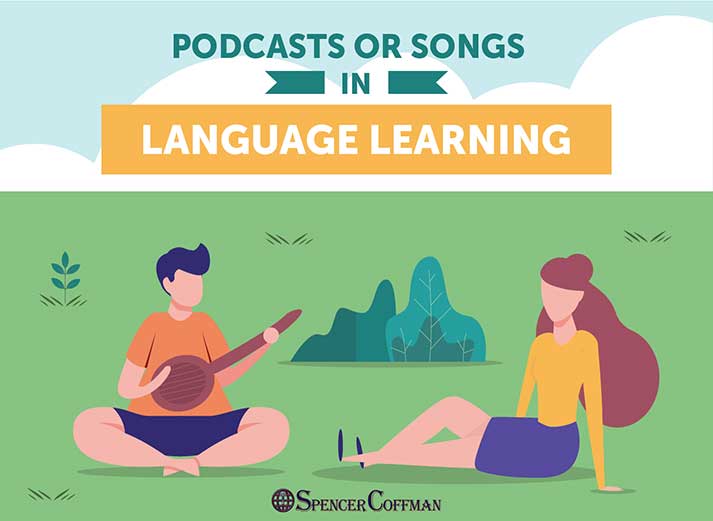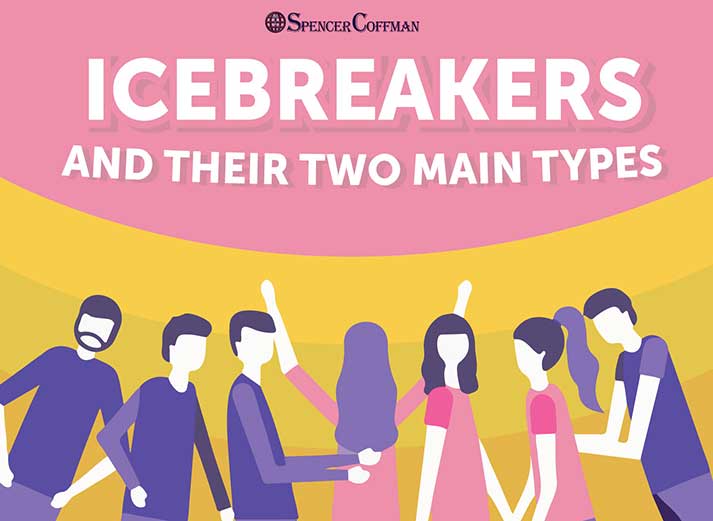When it comes to learning a language, the use of auditory media can be very beneficial. Many people are auditory learners and, as a result, auditory media will be more helpful to them than text-based media. In addition, songs have an amazing ability to become trapped within the contents of one’s mind.
You know exactly what I’m talking about. Songs get stuck in your head all of the time and, like it or not, you find yourself constantly singing some portion of the song over and over again. Therefore, it would seem that songs are a great way to learn a language.
However, often times, when a song is stuck in a person’s head it is more annoying than pleasing. Thus, this may not be a great way to learn a language because the learner would be constantly irritated having a small portion of a song stuck in his or her head that he or she doesn’t even understand! As a result, spoken audio may be a better solution.
Podcasts are a great and popular form of spoken audio that people can use when learning a language. Generally, there are no annoying tunes to occupy your mind and they are filled with many more words than songs. In addition, they are often more explanatory and contain words in both the native and target language.
For these reasons, it would seem that podcasts may be better than songs. Of course, podcasts can sometimes be long and boring if they are too drawn out. They can also be confusing if they are not well done.
Learn How To Protect Your Personal Information
Thus, the question is, which form of media is better? Are songs better than podcasts or are podcasts better than songs? Are they both good, or are they both bad? Continue reading and you will see that auditory media can be both good and bad and it has a proper use for all learners depending upon their situation.
Podcasts would be more appropriate than songs for teaching adults because adults have a longer attention span and are more capable of actively listening to what is being played. In addition, most adults learning another language are doing so out of their own volition.
They want to learn the language and are motivated to do so. Thus, they will be more willing to focus and listen than someone who does not wish to learn, for example, a child. Adults have a more structured rational and logical mind than children and are more likely to appreciate the content of a lecture or seminar as long as they are interested. Adults tend to really get into content whereas children prefer a tune.
Therefore, adults would benefit more from spoken audio than children. Songs can be used in addition to podcasts, however most language-learning songs can become obnoxious or annoying to adults after repeated use. Thus, it is best to have more focus on other forms of audio and periodically incorporate songs to expand their language-learning experience.
Songs
For the opposite reasons, songs would be better for teaching children. They have a shorter attention span and need to be actively entertained with some form of stimulus. Children like to be wild and crazy. Songs are fast-paced and active so they fit nicely with most children.
In addition, if a child is unwilling to learn and does not wish to participate, or listen; the talking media would go unheard, whereas a song still has the ability to register in the child’s, or anyone’s, mind. Thus, even if a child is unwilling to learn and sits pouting in the corner, the song will still penetrate his or her outer shell and register within his or her memory.
As we’ve established, like it or not, songs very easily become stuck in people’s heads. Thus, they are very effective for teaching children who do not want to be taught. No matter how hard they try, they will still listen to the song as long as they are hearing it. And, eventually, they will start to learn.
Therefore, songs would be a better choice for children. Podcasts can be incorporated, however, they shouldn’t be used for extended periods of time because children will quickly lose interest if they are not engaged.
Results
Podcasts and songs both have a place in language learning. That place is dependent upon the learners and their willingness to learn the language. If the learners are willing to learn then podcasts are a great media choice. If they are unwilling, then even though songs may be unpleasant, people will still learn.
In addition, podcasts may be a more effective choice for adult learners and songs for children. Keep in mind that both forms of media can be incorporated and that your main form of media will differ based on your audience.
For more great information take a look at the supplemental content on this website and check out these great blog posts. In addition, feel free to connect with me on social media.





